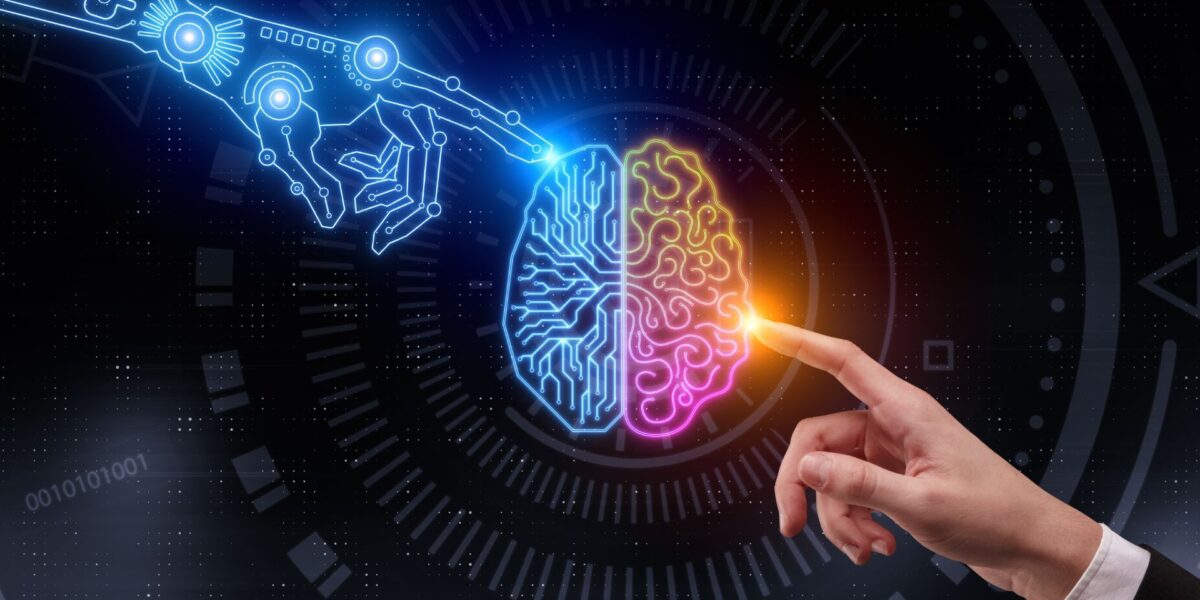Masa Depan di Tangan AI: Peluang dan Tantangan
Kecerdasan buatan (AI) telah menjadi topik hangat dalam beberapa tahun terakhir, dan dengan alasan yang baik. AI telah menunjukkan potensi luar biasa untuk mengubah berbagai aspek kehidupan kita, dari cara kita bekerja hingga cara kita berinteraksi dengan dunia di sekitar kita. Namun, seperti teknologi yang mengubah dunia lainnya, AI juga menimbulkan pertanyaan tentang dampaknya terhadap masa depan kita.
Peluang yang Menjanjikan:
- Meningkatkan Efisiensi dan Produktivitas: AI dapat mengotomatiskan tugas-tugas berulang dan kompleks, membebaskan manusia untuk fokus pada pekerjaan yang lebih kreatif dan strategis. Bayangkan robot yang melakukan pekerjaan berbahaya di pabrik, atau algoritma yang menganalisis data kompleks untuk membantu dokter mendiagnosis penyakit.
- Meningkatkan Kualitas Hidup: AI dapat membantu kita dalam berbagai aspek kehidupan, dari kesehatan hingga transportasi. Sistem AI dapat memantau kesehatan kita, memberikan rekomendasi pengobatan yang lebih tepat, dan bahkan membantu kita dalam mengelola keuangan. Mobil otonom dapat mengurangi kecelakaan lalu lintas dan meningkatkan efisiensi transportasi.
- Membuka Pintu Kreativitas Baru: AI dapat membantu kita dalam menciptakan karya seni, musik, dan sastra yang baru dan inovatif. Algoritma AI dapat menganalisis data dan tren untuk menghasilkan ide-ide baru, membantu seniman dalam proses kreatif mereka.
Tantangan yang Perlu Diperhatikan:
Meskipun menawarkan banyak manfaat, perkembangan AI juga menimbulkan sejumlah tantangan dan pertimbangan etis. Beberapa di antaranya adalah:
- Pengangguran: Otomatisasi yang didorong oleh AI dapat menyebabkan hilangnya pekerjaan di berbagai sektor, terutama pekerjaan yang berulang dan rutin. Ini menimbulkan pertanyaan tentang bagaimana kita akan menghadapi perubahan besar dalam pasar tenaga kerja dan bagaimana kita akan memastikan bahwa semua orang memiliki akses ke pekerjaan yang layak.
- Bias dan Diskriminasi: AI dilatih dengan data yang dikumpulkan dari dunia nyata, yang seringkali mengandung bias dan diskriminasi. Jika AI tidak dilatih dengan data yang adil dan representatif, maka AI dapat memperkuat bias yang ada dan bahkan menciptakan bias baru.
- Penyalahgunaan dan Keamanan: AI dapat disalahgunakan untuk tujuan jahat, seperti menyebarkan informasi palsu, memanipulasi opini publik, atau bahkan mengendalikan sistem kritis. Kita perlu mengembangkan mekanisme keamanan dan etika yang kuat untuk memastikan bahwa AI digunakan untuk kebaikan dan tidak jatuh ke tangan yang salah.
- Kesenjangan Digital: Akses ke teknologi AI dan kemampuan untuk menggunakannya secara efektif dapat menciptakan kesenjangan digital yang lebih besar. Orang-orang yang tidak memiliki akses ke teknologi atau pendidikan yang memadai dapat tertinggal dalam era AI.
Dampak Positif AI
- Peningkatan Efisiensi:
- Otomatisasi Tugas: AI dapat mengambil alih tugas-tugas yang berulang dan memakan waktu, sehingga meningkatkan produktivitas.
- Pengambilan Keputusan: AI dapat menganalisis data dalam jumlah besar dengan cepat dan akurat, membantu dalam pengambilan keputusan yang lebih baik.
- Inovasi:
- Pengembangan Produk Baru: AI dapat digunakan untuk menciptakan produk dan layanan baru yang inovatif.
- Penelitian: AI mempercepat proses penelitian di berbagai bidang, seperti medis, ilmu material, dan lainnya.
- Kualitas Hidup:
- Kesehatan: Diagnosis penyakit yang lebih akurat, pengembangan obat-obatan baru, dan perawatan yang lebih personal.
- Pendidikan: Pembelajaran yang lebih personal dan efektif, akses ke pendidikan berkualitas bagi semua.
- Keamanan:
- Deteksi Ancaman: AI dapat digunakan untuk mendeteksi ancaman keamanan siber dan kejahatan dengan lebih cepat.
- Sistem Keamanan: Sistem keamanan yang didukung AI dapat meningkatkan perlindungan fisik dan digital.
Dampak Negatif AI
Kesenjangan:
- Digital Divide: Akses yang tidak merata terhadap teknologi AI dapat memperlebar kesenjangan antara yang kaya dan miskin.
Privasi:
- Penyalahgunaan Data: Data pribadi yang dikumpulkan oleh AI dapat disalahgunakan untuk tujuan yang tidak etis.
Bias Algoritma:
- Diskriminasi: Algoritma AI yang dilatih dengan data yang bias dapat menghasilkan output yang diskriminatif.
Ketergantungan:
- Ketergantungan Berlebihan: Ketergantungan berlebihan pada AI dapat mengurangi kemampuan manusia untuk berpikir kritis dan memecahkan masalah.
Ancaman Eksistensial:
- AI Superintelligence: Kemungkinan pengembangan AI yang jauh lebih cerdas dari manusia dapat menimbulkan ancaman eksistensial.
Meminimalisir Dampak Negatif dan Memaksimalkan Dampak Positif
Untuk memaksimalkan potensi positif AI dan meminimalisir dampak negatifnya, kita perlu:
- Regulasi yang Tepat: Pemerintah perlu membuat peraturan yang jelas dan komprehensif untuk mengatur pengembangan dan penggunaan AI.
- Etika AI: Pengembang AI perlu memperhatikan aspek etika dalam pengembangan dan penerapan teknologi.
- Pendidikan dan Pelatihan: Masyarakat perlu diberikan pendidikan dan pelatihan yang memadai untuk menghadapi perubahan yang dibawa oleh AI.
- Kolaborasi: Pemerintah, industri, akademisi, dan masyarakat perlu bekerja sama untuk mengatasi tantangan yang ditimbulkan oleh AI.
Kesimpulan:
AI memiliki potensi besar untuk mengubah dunia kita, baik untuk lebih baik maupun untuk lebih buruk. Kita perlu bersiap menghadapi tantangan yang ditimbulkan oleh AI dan memastikan bahwa teknologi ini digunakan secara bertanggung jawab dan etis. Dengan perencanaan yang matang dan kolaborasi yang kuat, kita dapat memanfaatkan kekuatan AI untuk menciptakan masa depan yang lebih baik bagi semua orang.
Penting untuk diingat bahwa AI bukanlah solusi untuk semua masalah. AI adalah alat yang kuat yang dapat digunakan untuk kebaikan atau kejahatan. Tanggung jawab kita adalah untuk memastikan bahwa AI digunakan untuk kebaikan dan untuk menciptakan masa depan yang lebih baik bagi semua orang.
Kunjungi juga website kami untuk beberapa arikel menarik lain nya https://bie.telkomuniversity.ac.id/

